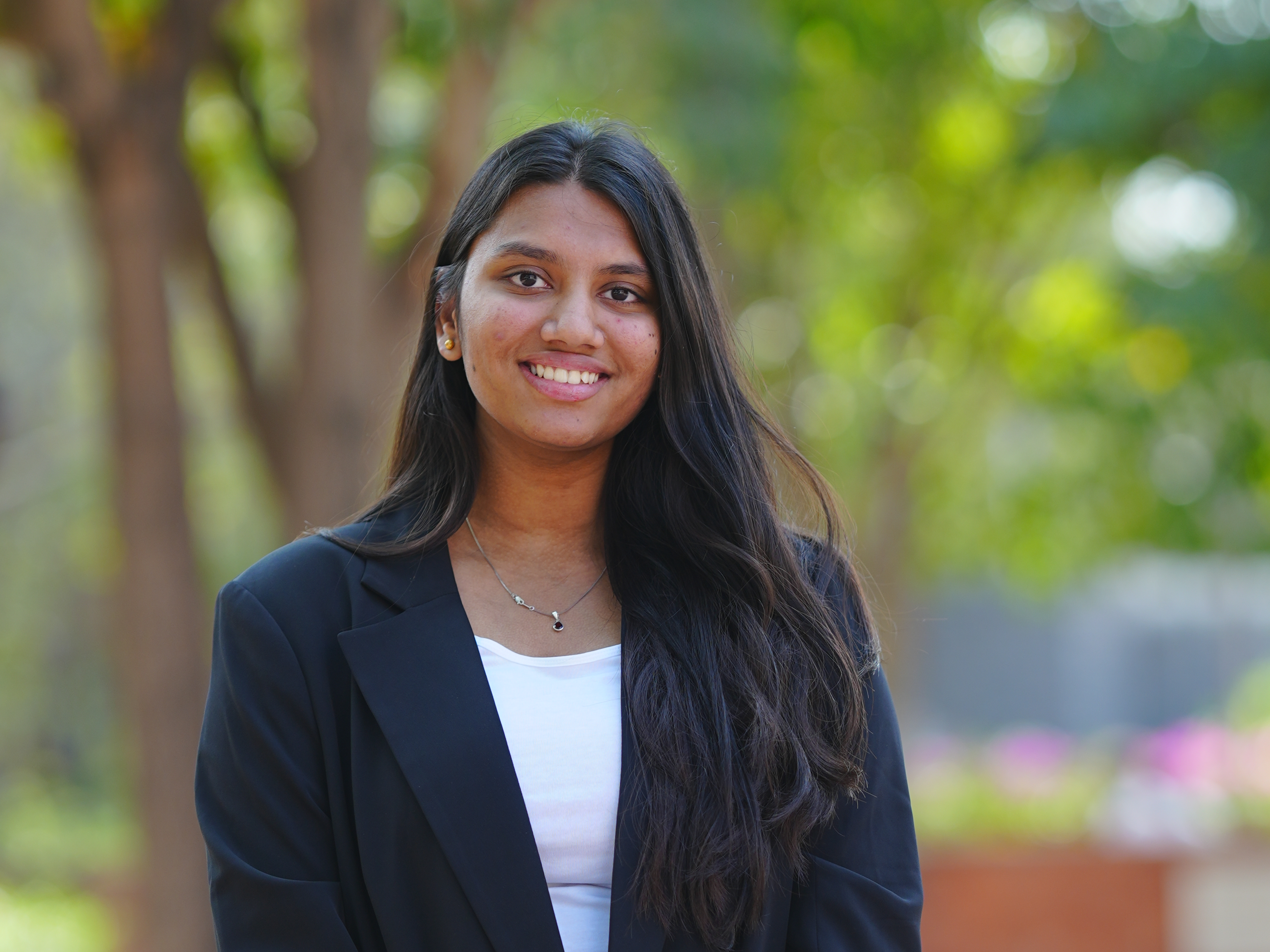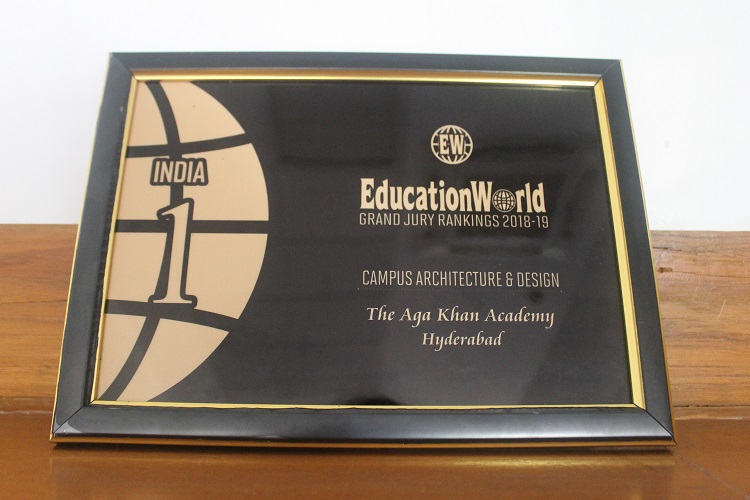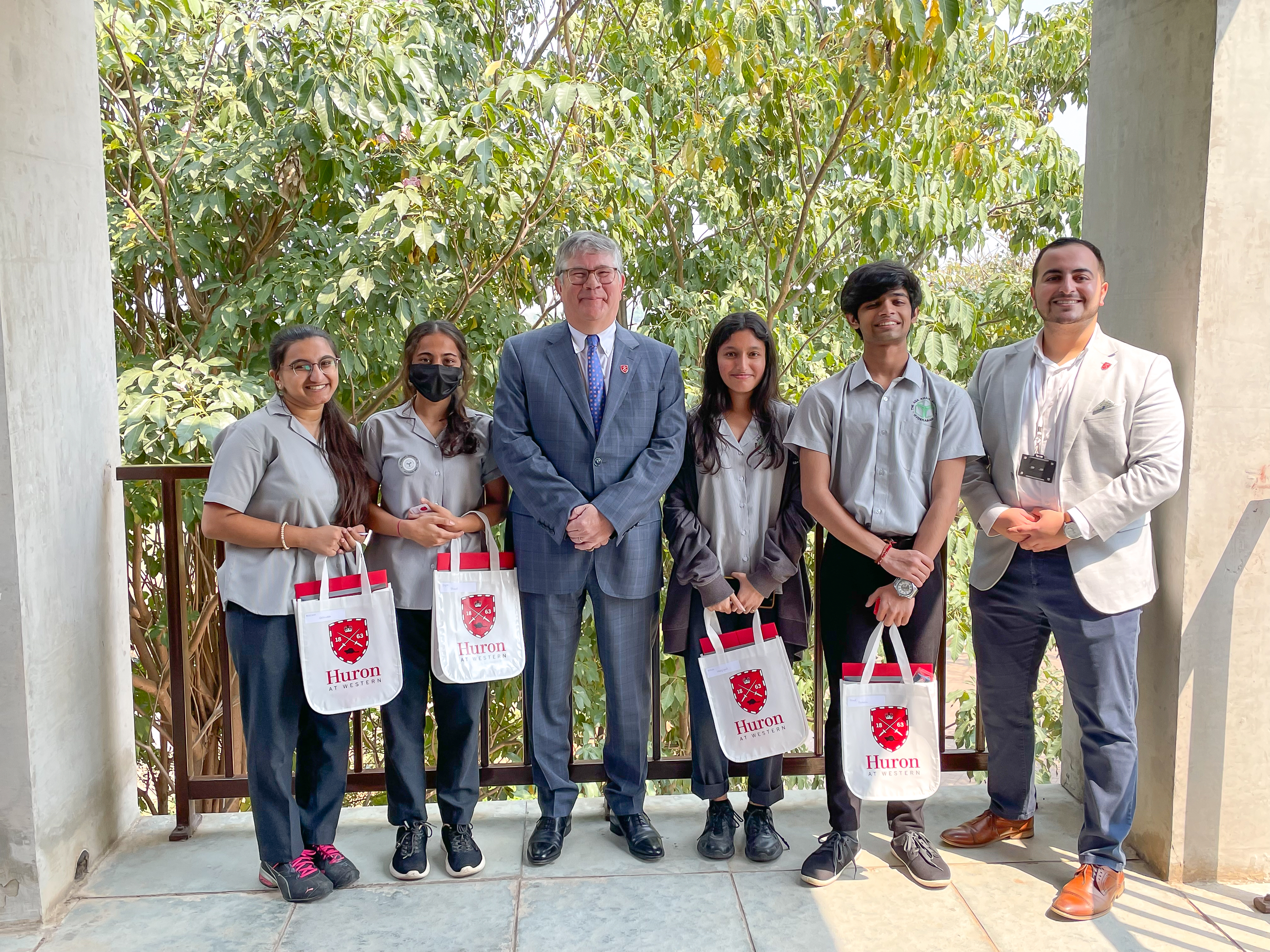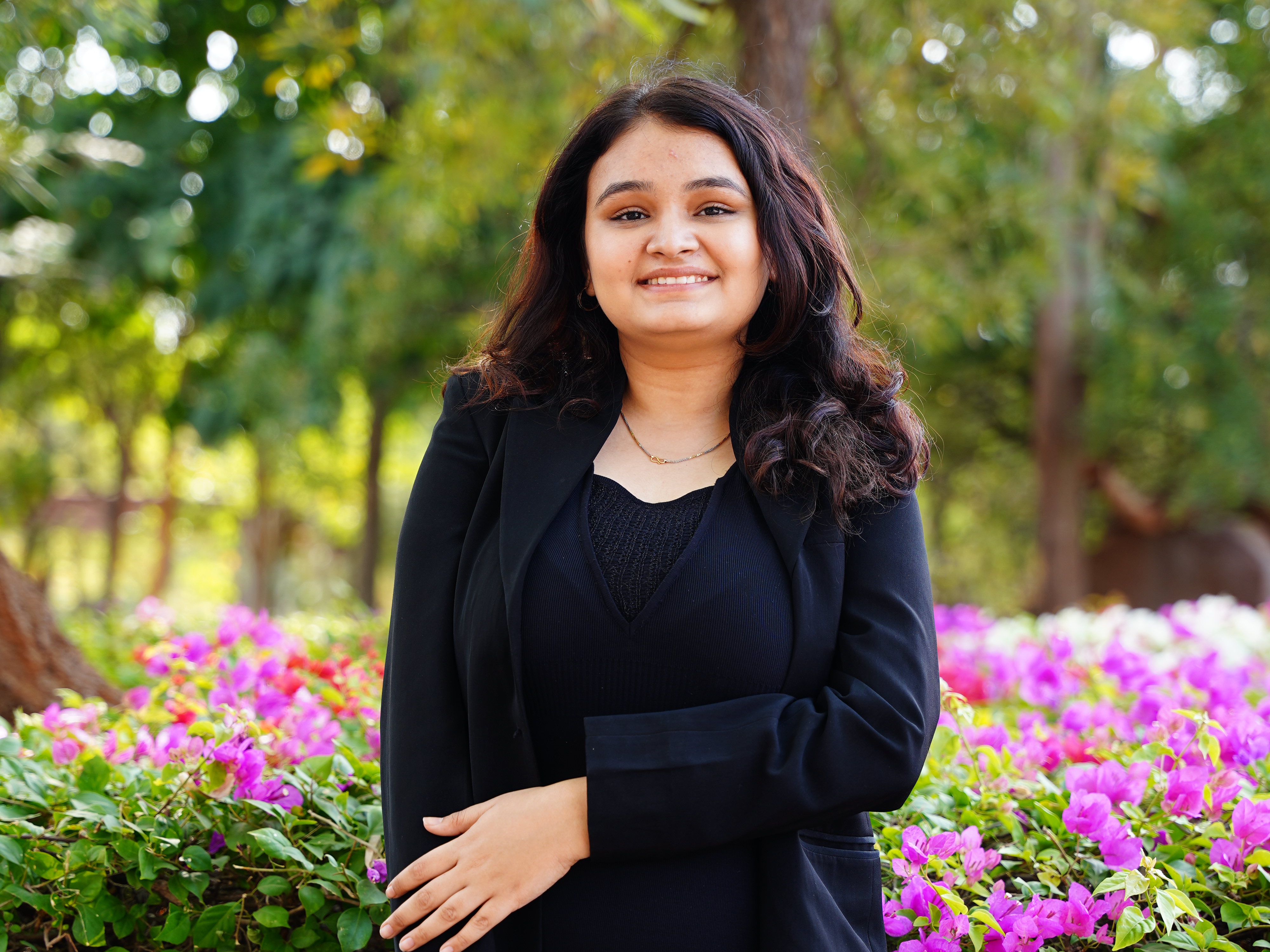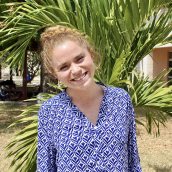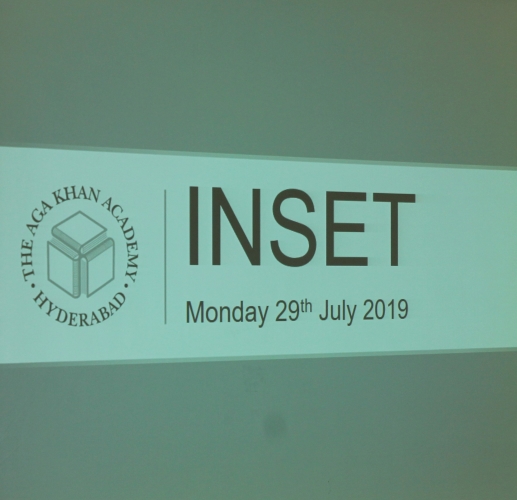
Primary Years Programme
The Junior School of the Aga Khan Academy Hyderabad is an International Baccalaureate World School and has been authorised for the Primary Years Programme (PYP).
Foundations for lifelong learning
We offer the PYP for students in grades 1–5 (aged 6–10). The programme focuses on the development of the whole child. It is geared towards creating independent, confident and respectful learners.
Our classroom curriculum addresses the children's social, physical, cultural and ethical development while giving them a strong foundation in all the major areas of knowledge.
The curriculum consists of five essential elements:
- concepts
- knowledge
- skills
- attitude
- action.
 The core subjects we cover include English language, mathematics, social studies, science and technology. Our programme also includes a beginning computing course, physical education, music, art and Hindi.
The core subjects we cover include English language, mathematics, social studies, science and technology. Our programme also includes a beginning computing course, physical education, music, art and Hindi.
Students and teachers explore questions in all subject areas using an interactive, student-centred approach. The knowledge element of the curriculum is enhanced by six themes that are studied across the various subject disciplines. These are:
- who we are
- where we are in place and time
- how we express ourselves
- how the world works
- how we organise ourselves
- sharing the planet.
These transdisciplinary themes of global significance are addressed through six units of inquiry at each grade level, and this forms the school’s programme of inquiry. The programme of inquiry is the conceptual curriculum framework for the PYP. The transdisciplinary themes ensure that they are "revisited throughout the students’ years of PYP so that they are immersed in broad ranging, in-depth, articulated curriculum content” (Making the PYP Happen: A curriculum framework for international primary education).
The PYP develops well-rounded students who are well versed in all areas of knowledge. They learn to be intellectually curious, principled, caring, open-minded, well balanced and reflective learners.
Please visit the Admission Requirements page or contact us to find out more about applying to the PYP at the Academy.
Clare McLaughlin: Encouraging growth at the Academy
Before we enter the 2019 – 2020 academic term, we would like to spotlight a few staff from AKA Mombasa who are going on to pursue new adventures in the upcoming academic year. Here, we take a look at Academy fellow Clare McLaughlin and her two years at the Academy.
Clare McLaughlin is from Warren, Vermont and was an Academy fellow at the Aga Khan Academy Mombasa. Clare was focused in the Service Learning programme
and involved in other programmes around the Academy.
During her time at the Academy, Clare said she is grateful for the various people she was able to work with.
“My time at AKA Mombasa has been an incredible opportunity to learn and grow,” Clare said. “Foremost I’ll miss the students who were immeasurably thoughtful, hilarious and motivating. Students were the center of everything I did and valued in my time at the Academy so I’ll miss them the most. I’ll also miss the friendships I’ve made with staff across the Academy - from the Administration block to the dorms - the Academy staff always kept me laughing and learning.”
Clare said she was able to recognise the value of pluralism at the Academy, which she believes will help her in her future.
“I feel fortunate that on each team I worked with, I heard different perspectives and had to challenge myself to see problems and solutions from every angle,” Clare said. “I value this immensely and will carry with me this standard of listening and collaboration.”
Throughout her fellowship, Clare said she enjoyed the opportunities she was given to work on various projects and programmes, while also improving the Service Learning programme for the years to come.
“The best part of the fellowship is its flexibility to try new things, work with an array of groups and interests in the Academy, and propose creative solutions to challenges,” Clare said. “I especially enjoyed serving as a mentor, working on the girls’ football programme, working on the Exchange Programme with the Academy in Hyderabad, and working to make Service Learning more community-centered, effective and sustainable.”
For her next adventure, Clare said she plans to go back to school for her Master’s degree.
“I am attending Stanford University to pursue a Master’s degree looking at education for sustainable development,” Clare said.
George Kamau Gachoya, an Environmental Systems and Societies teacher at the Academy who Clare worked with as a teacher’s assistant, said he admired Clare’s work ethic and the various new ideas she introduced to his class.
“Clare is a diligent and an outspoken person with whom I have had an opportunity to work with in the last two years as my protégé in the ESS class,” George said. “She is meticulous in planning; the resources she prepared for the lessons she helped deliver were always enriching and promoted deeper understanding of concepts. She introduced Freakonomics radio to the class and organised for class discussions initiated by students on hot environment topics of the week that they could pick from the media. She is friendly, but also very firm when dealing with students. Her keen eye could quickly pick students who were not using their lesson time productively.”
Aga Khan Academies Alumni Update
Aga Khan Academies Alumni Update
Thank you for visiting the Aga Khan Alumni page. We want to be sure we have your current information so that we can stay in touch.
We ask that you kindly fill out the information request below. Rest assured that your personal information will remain confidential and will be for the Academy’s purposes only.
We are looking forward to hearing from you!
Rajan Thampi: Working for a cause
Rajan has played this role of connecting students to resources for his entire career. His work with Aga Khan Education Services began in 2008 in Maheshwaram Mandal, present day Telangana, where he implemented outreach programs for government schools and anganwadis. Rajan was in charge of programs like introducing life skills to high schoolers, leading health programs for adolescent girls, organising inter school sports competitions, and also training teachers for pre-primary and primary schools. Rajan’s other responsibility at that time, something he is still involved in, is creating and maintaining relationships with government officials.
A significant part of outreach depends on securing permission and getting recognition from government education bodies. Rajan played a major role in getting junior and senior schools recognised by the authorities. Rajan thanks the people who support the outreach department in these endeavors - the Academies Unit and members of the local board, Suleiman Hirani and Jayanthi.
Born in Kerala, the second of five siblings, Rajan grew up in Shakkarnagar, Telangana. Shakkarnagar is home to historical industrial era sites built under the Nizam. Most significant among these sites is the 1,600 square kilometer Nizam Sugar Factory that the town gets its name from. Designed as a model town, the place was built for factory employees and their families. “My father was an accountant in the factory,” remembers Rajan, “and we use to live in the accommodation provided by the factory in its colony.” Madhu Malancha high school, where Rajan went, was also created and funded by the factory. But India’s sugar trade has been in decline for decades, and in his lifetime Rajan has had to see the closure and privatisation of the massive factory. “Asia’s largest sugar factory is now shut,” he muses.
After completing senior school, Rajan gained a Bachelors in Commerce and started teaching at a private school. Finding his calling, Rajan then pursued a Bachelors in Education, focusing on social studies and education. Today he also has a Masters degree in social work under his belt. To Rajan, these degrees are tools to help others. Asked about the outreach department's future plans, his responses are ambitious and focused. “Reaching out to 31 districts of Telangana,” he says, “and to continue to share expertise through collaborative discussion forums for the government teachers are some of my plans.”
“Inner delight,” he says, “and the satisfaction obtained from working for a cause are the rewards I seek from my work." If the outreach program is a manifestation of the ethos behind service and stewardship, then Rajan exemplifies those ethos.
